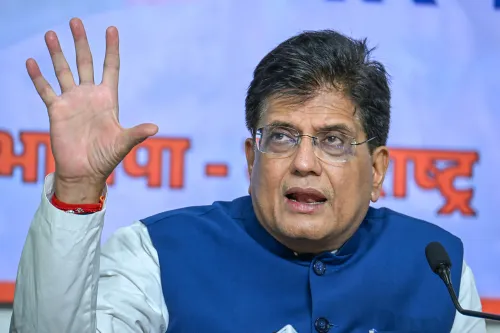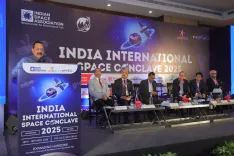Has India Secured Its Place in the Codex Executive Committee?

Synopsis
Key Takeaways
- India re-elected to Codex Executive Committee until 2027.
- Unanimous decision reflects global support for India's leadership.
- Focus on improving food safety and quality standards.
- Advocacy for using AI in Codex operations.
- Significant advancements in standards for cashew kernels and laver products.
New Delhi, Nov 18 (NationPress) India has successfully been re-elected to the Codex Executive Committee (CCEXEC) for the Asia region, achieving a unanimous decision from global members. This re-election confirms the country’s vital collaborative leadership role through the end of CAC50 in 2027, ensuring that the technical and trade priorities of the Asian continent are represented at the highest levels, as announced on Tuesday.
The Codex Alimentarius Commission (Codex), is the international body responsible for setting food standards, established by the United Nations’ Food and Agriculture Organization (FAO) and the World Health Organization (WHO).
During the productive session at the 48th Codex Alimentarius Commission (CAC48), India secured a unanimous mandate that underscores its commitment to effective global food governance, emphasizing efficiency, data management, and the establishment of equitable standards.
The Indian delegation, led by Rajit Punhani, Chief Executive Officer of the Food Safety and Standards Authority of India (FSSAI), along with representatives from the Ministry of Health and Family Welfare and various expert organizations, achieved several significant strategic outcomes.
“Earlier in the week, during the CCEXEC89 session, India, as Member Asia, made substantial contributions to discussions on Codex efficiency and future challenges,” stated the Health Ministry.
The country particularly focused on updating and developing databases concerning food additives, pesticide residues, veterinary drugs, methods of analysis, and contaminants in food.
Additionally, India advocated for the incorporation of modern technologies, including Artificial Intelligence (AI), to enhance the efficiency of Codex operations, especially regarding document translation.
The delegation actively defended national and regional interests, emphasizing the necessity of considering regional data in the development of standards. India played a crucial role in advancing several global standards, ensuring they remain relevant and useful for the region.
A significant success for agricultural trade was the advancement of the Standard for Cashew Kernels. India successfully pushed for the resumption of this work, with CAC48 recommending the issuance of a Circular Letter to gather comments, preparing the proposal for review by CCEXEC90 and subsequent consideration at CAC49.
Demonstrating its regional influence, India supported the transition of the regional standard for laver products (Asia) into a global standard and welcomed the new initiative on a commodity standard for pasteurized liquid camel milk, according to the ministry.
The session concluded with India’s renewed pledge to operate within the multilateral system to promote food safety, quality, and fair trade for all members.









